Chieko Murata
Nacimiento : 1915-02-28, Kobe, Hyōgo Prefecture, Japan
Historia
Actress. Born 1915, died November 1995.

Ume
Famous detective Kindaichi solves a series of mysterious murders in a wealthy family. An excellent blend of intrigue and betrayal, set against the backdrop of wealth, this film is loaded with twists and turns and surprises at every corner.
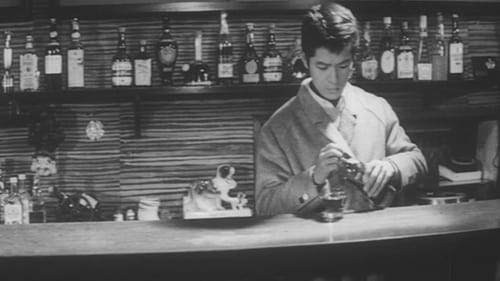
Jiro está cansado de ver cómo su madre ejerce la prostitución con extranjeros. El chico vive junto a su madre y otras prostitutas en un pequeño burdel situado junto a la base aérea americana de Yokota. Cansado de los acontecimientos, Jiro planea robar una jugosa cantidad de dinero a su tía, prostituta de lujo, pero lo que inicialmente sería un sencillo robo, desembocará en una oleada de violencia. Polémica película sobre un hombre perturbado, que provocó el arresto de su director por parte de las autoridades japonesas.

Japanese comedy film.

Japanese comedy directed by Noriaki Yuasa.

A story full of youthful vigor and spirit as high school students try to work out their problems, realize the awakening of love and growing maturity and find fun and happiness in helping others.

In 1963, Funaki Kazuo's debut song of the same name was released and then it was adapted to a movie based on Kenji Tomishima 's novel “Shake to Tomorrow” with the same title, produced by Daiei with this song as a motif. Singer and actor Funaki Kazuo also appears in the movie, which depicts the fun, love and heartbreak in a Japanese school.

Owner
The remake of Yoshikawa's novel continues with the second installment in which Takezo, soon to be Miyamoto Musashi, emerges from the Himeji Castle after three years of intense contemplation and philosophical study and starting on his epic quest to complete his skill in the Way.

Tamako
Utsugi, a seventy-seven-year-old man of refined tastes who is recovering from a stroke, discovers that, while his body is decaying, his libido still rages on -- unwittingly sparked by the gentle, kindly attentions of his daughter-in-law Satsuko, a chic, flashy dancer with a shady past. Pitiful and ridiculous as he is, Utsugi is without a trace of self-pity, and his diary shines with self-effacing good humor.

A fishing village is terrorized by a giant whale, and the fishermen are determined to kill it.

Fujino Miyahara
Japanese "kayo" film centered around the song "Eriko" by Yukio Hashi.

1962 Japanese movie

Shino
Obscure Masamura film shot in 1961

Kazuko
A young girl is rigorously trained in the feminine arts so that she can become a geisha. As she struggles through life, she learns to live not just as a woman but as a complete person.

Oroku
Features a haunted well with yet another blind masseur's vengeful ghost.

Shikiko Oba is nimble with her fingers and teaches dressmaking and designing. Among her pupils are Rinko, Katsumi and Tomie. Ginshiro, who is as shrewd as the shrewdest of the older generation of dyed-in-the-wool Osaka businessmen, steps into picture and Shikiko soon feels that he is indispensable to her. But the advent of a man in their midst breaks up the harmony that has existed among the four women, as gradually he forces himself on them with promises of love.

Yukio's mother
Yukio, a farm boy, and Toru, a fisherboy, live in a small Japanese village that is periodically threatened by a volcano on one side and tidal waves on the other. Yukio's younger sister Setsu follows then and dreams of becoming a pearl diver. Toru is preparing to go fishing with his father when a bell tolls and a danger flag is hung high on the hill behind the village to warn of an impending tidal wave by the village patriarch, known as Old Gentleman.

Follows the murder of a money-lending masseur by an impoverished samurai. The slain masseur's daughter will also fall victim to his curse, so that she can become empowered as an agent of her father's vengeance.

The first story concerns an attractive young woman who works in a Tokyo nightclub. Her plan for a solid financial future has a double whammy. In the second story, a beautiful young woman is employed by an unscrupulous real estate agent to convince male clients to invest in worthless property. The last story is about a widowed geisha who has no real financial worries and who falls in love with a forger.

Omaki
In one of Japan's most frequently-told ghost stories, a murdered wife returns in an act of vengeance.

Fude Ôki
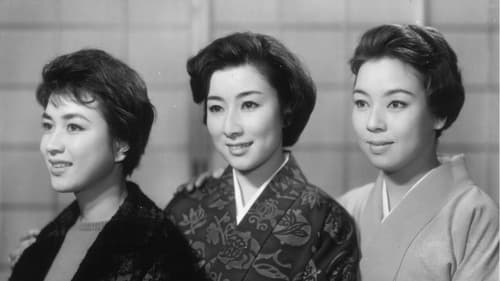
1959 adaptation of Junichiro Tanizaki's novel.

The story follows Oshino, a geisha who is trying to start a new life with a lover who is a painter. However, her past filled with debts and pimps catches up to her.

When a nobleman finds a woman to be an obstacle to his growing political influence, he kills her and her cat and has their bodies immured in a wall. Shortly afterwards, a catlike demon begins to haunt the castle.

Suzunosuke faces perhaps his wildest foes. This evil gang is lead by a one-eyed birdman and other demonic creatures.
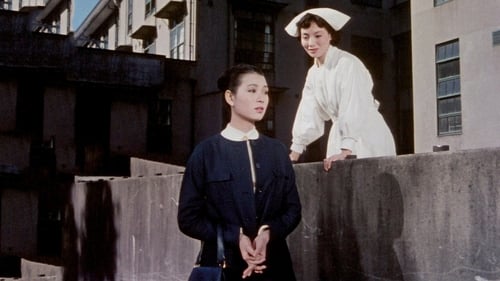
Shima Takiko
The story revolves around a young man appointed to rescue a troubled hospital who must choose between two women, a dedicated nurse or a spoiled rich girl.

A woman struggles to raise her young son on her own in postwar Japan, finding companionship with a kind laborer while still hoping for the return of her missing husband.

Adaptation of the Yukio Mishima novel.

An exciting film about thugs, in which murders and drugs, justice and resentment explode in the dark city of Tokyo with the help of guns and violence.
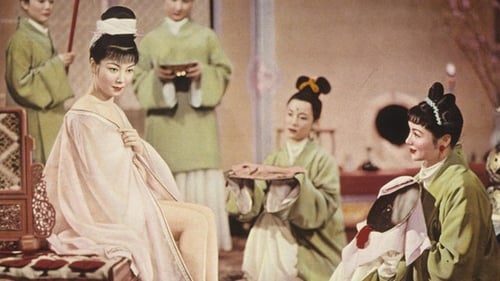
Lu-hua
Ambientado en la China del siglo VIII. Narra la historia de amor entre el emperador Hsuan Tsung, viudo desde hace algunos años, y una joven plebeya que se parece mucho a su mujer. El Emperador está afligido por la muerte de su esposa. La familia Yang quiere proporcionar al Emperador un consorte para poder consolidar su influencia sobre la corte. El General Un Lushan encuentra una pariente lejana que trabaja en su cocina y la preparan para presentarla al Emperador. El emperador se enamora de ella y se convierte en la princesa Yang Kwei-fei. Los Yang son entonces nombrados ministros importantes, aunque a Lushan no se le da la posición en la corte que él codicia. Los ministros abusan tanto de su poder que hay una revuelta popular contra todos los Yang, alimentados por Un Lushan.

A Girl isn't Allowed to Love is a 1955 Japanese film directed by Teinosuke Kinugasa.
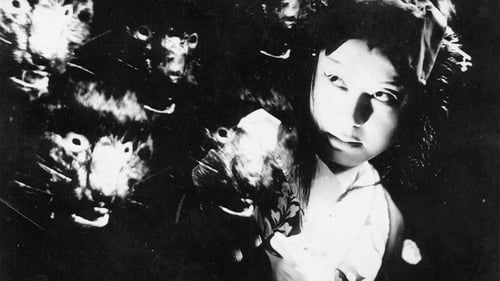
A kabuki actress is murdered. Her pet cat laps its mistress's blood and becomes a demon possessed by the vengeful murder victim.
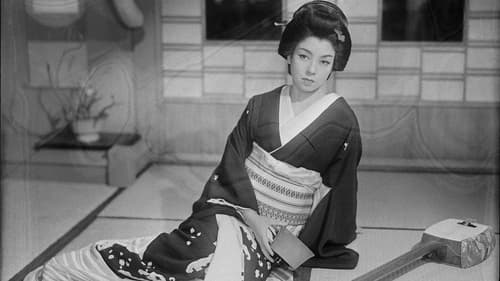
Oyasu
Based on the original work of Akutagawa Prize-winning writer Ashihei Hino, the film depicts the love of the proud geisha Nobukichi Hakata in the early Taisho era.

Head Nurse Oshita
Adaptation of the novel by Masao Kume.

Michiko Asakura was married to the eldest son of the Sakuma family, an unsealed family in Shinshu, but died from her husband and returned to her parents' house in Tokyo with her five-year-old daughter Yoshiko.
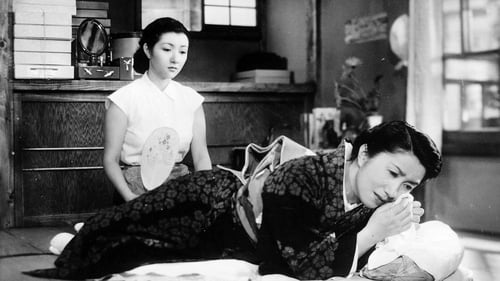
Nuiko
Kiyoko y su familia viven en el distrito central de Tokio. Tiene 23 años, es cobradora de autobús, pero anhela llegar a algo más en la vida. Su modelo es Katsuura, una inquilina que vive en su casa y que lee, pinta y escucha sus propios discos. Harta de las constantes rencillas de sus familiares por motivos económicos, se traslada a los suburbios y alquila una habitación a una anciana viuda.

Asako works in a hostel for troubled young women. When a beautiful young girl is brought in one day after committing theft, Asako finds out from the older widow she works with that the new girl is undoubtedly her half-sister. When the younger sister suddenly flees on account of a misunderstanding, Asako makes up her mind to find the mother who deserted them both.
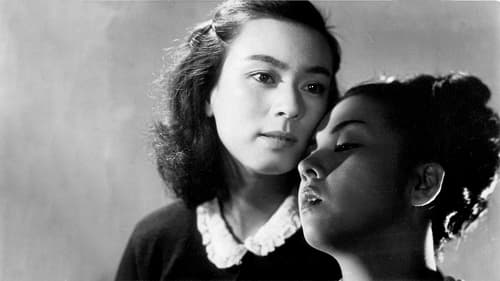
Clothes of Deception initiated Yoshimura’s most characteristic vein. This geisha story is often described as a loose remake of Mizoguchi’s pre-war masterpiece Sisters of Gion (1936), but this is inexact. Whereas in Mizoguchi’s study of two sisters, both women had been geisha, in Yoshimura’s film only Kimicho (Kyo Machiko) is, while her sister works in the Kyoto tourist office. Juxtaposing a traditional Kyoto profession with a modern one, Yoshimura shows how life in the old capital was changing in the wake of wider transformations in Japanese society.

Life and love in corrupt postwar Tokyo, as a young couple struggles against both the law and the mob.

Akiko Ida
Tokiko is a mother patiently waiting for her husband's return from the war when her 4-year old son becomes ill. She takes him to the doctor for treatment but has no way of paying. She resorts to prostitution. One month later her husband returns from WWII to find his desperate wife, who tells him the truth. Together they must deal with the consequences.
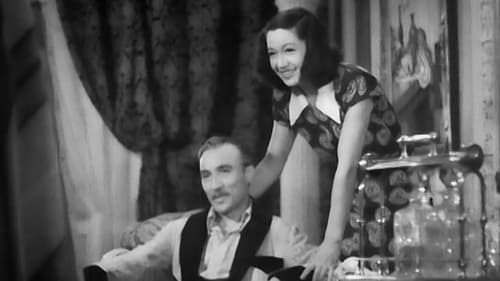
Chiyo, Tadahiko's girlfriend
Tras la Segunda Guerra Mundial y la derrota de Japón, la aristocrática familia Anjo se encuentra arruinada. Para saldar sus deudas deben vender su mansión y deciden celebrar una última fiesta... Uno de los clásicos del cine japonés filmado durante la ocupación americana. Película de tintes sociales realizado por el izquierdista Yoshimura con guión de su cuñado, el luego célebre cineasta Kaneto Shindô. Protagoniza la mítica Setsuko Hara.

The film is set during the days of the scarcity of food after World War II, during which five men ate an elephant that died in a zoo. The elephant's corpse however, was infested with deadly bacteria and the men have only 30 hours left to live...

It is 1921 and a town has a newspaper which prints urgent bulletins as required. The Washington-based CITES treaty, in which Japan participates, puts a limit on the number of warships any country can possess. As a result, Japan has to decommission a ship to its makers' disappointment. An institute of technology's laboratory designs a new ship. Due to less ships, sailors have to retire and are also disappointed. The laboratory's manager and an admiral are visiting a patient at a hospital and meet coincidentally. The former has a daughter who worries about her father's workload. She asks him to accompany her to a concert. Father has little time, but is convinced for her sake. He is inspired for a ship's design at the performance. The film is inspired by the life of Jo Hiraga.

Story of Jiro

Family of Love
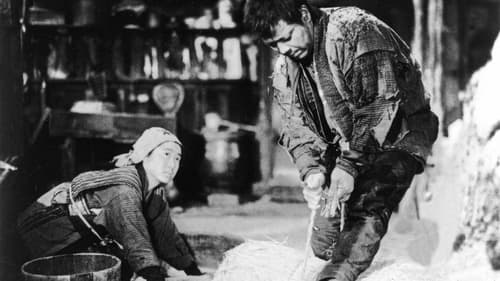
Landowner's Wife
Kanji is a poor peasant widower who struggles to earn a living for his daughter and himself and to pay off his father-in-law's debts.
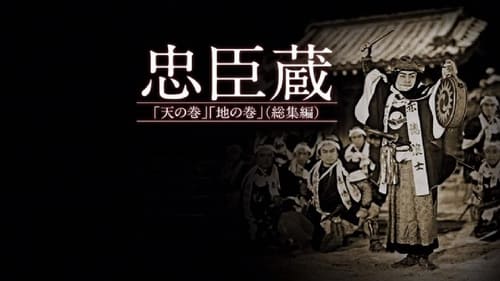
The vassals of the Asano clan, who surrendered the castle & became wanderers, deceive the enemy and the public, wait for an opportunity to avenge their master and his family.

A 1937 Japanese language film directed by Tomu Uchida, starring Ryo Akaboshi, Mitsuru Date and Hisao Furutani.

En 1936, el director Tomu Uchida llevó al cine la primera parte de la novela El teatro de la vida, que basándose en el retrato de la corrupción de un hombre y la mujer que desairó, se centra en la juventud del personaje.
































